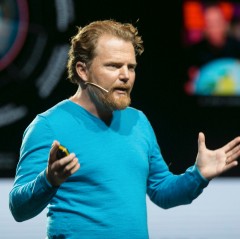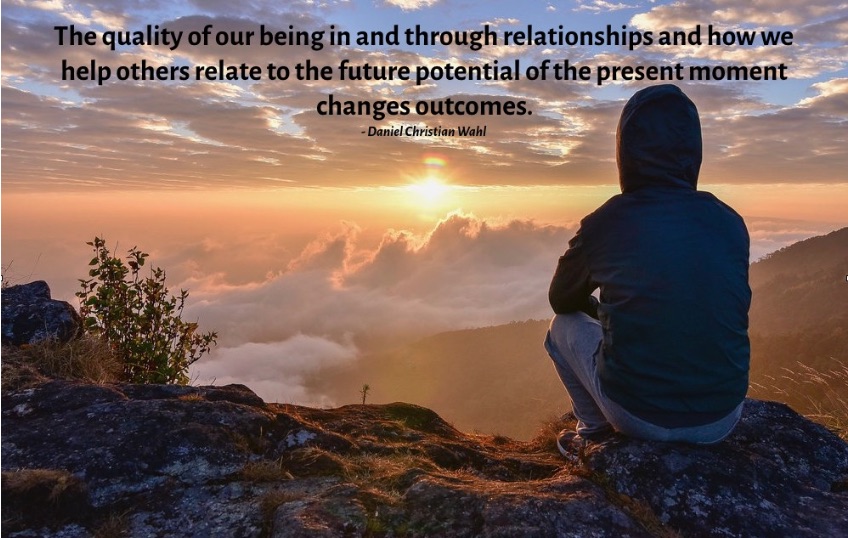Solo time in the wild
September 18, 2018
 Spending time alone in nature, with an open heart/mind, maybe holding a question or maybe simply letting one come, is a valuable ally for evolutionary activists. Solo time in nature can generate powerful insights. It serves as an effective way of letting go of the old and inviting the new (story) into our lives.
Spending time alone in nature, with an open heart/mind, maybe holding a question or maybe simply letting one come, is a valuable ally for evolutionary activists. Solo time in nature can generate powerful insights. It serves as an effective way of letting go of the old and inviting the new (story) into our lives.Rites of passage ceremonies exist in all of the world’s indigenous cultures. They are an important marker of transition, transformation and change in the lives of members of these cultures. The transition from childhood to adulthood, from adulthood into eldership, the transition into parenthood, the confirmation of a new role in the community, the intentional and ceremonial leaving behind of modes of thinking and acting that no longer serve us — these important moments of change and transformation can be energized and celebrated through rites of passage ceremonies. They serve to support individuals and help them to recognize their unique gifts and potential, for their own benefit, for the benefit of their community and for the benefit of the world.
In the industrial growth society we have done away with traditional rites of passage or turned them into ineffective vestiges of their ancient counterparts. Vision quest, or vision fast, is a powerful ritual that can help individuals to mark these important life stages and transitions in a meaningful and helpful way.
For most people, there comes a time in life when engaging in such a ritual could be an important act of transformative innovation at the very personal level of our own way of being in the world. Rites of passage ceremonies enable men and women of all ages, but especially young adults, to engage in an age-old ceremonial pattern: completion of an old life, movement through the threshold of the unknown and return to the world reborn. People in transition from one phase of life to another often find deep meaning and guidance in this process. It is a path that has been followed by human beings for many thousands of years. When it is time to consider such a ritual, these questions call us:
Who am I?
What do I have to give?
How can I heal my wounds and leave behind habits that no longer serve?
How can I become an effective agent of positive change?
How can I love this world, every day a little bit more?
What is my true calling?
How can I serve?
Just as meditation connects us to our inner wisdom and intuition, and practising the way of council connects us to the collective wisdom of our people and community, nature-based rites of passage rituals — or simply spending conscious solo time in nature — connect us to nature as a profound source of insight, guidance, vision and strength.

Shortly after my own first vision fast in 2008, I read Peter Senge, Otto Scharmer, Joe Jaworski, and Betty Sue Flowers’ book Presence (2005) and was delighted to find out about John P. Milton’s vision fast work with global business leaders. John’s programme seemed to have had a profound effect on many of them. I met John only a few weeks later when he paid a surprise visit to Findhorn. He gave me a copy of Sky Above, Earth Below (2006). The book describes many useful techniques for meditation, conscious movement, and visualizations to draw strength and insight from our conscious participation in nature. It has been a treasured companion.
Mindfulness practices, council and solo time in nature can support us on our path of living the questions, individually and collectively. We are all making a difference, not just by what we do, also by what we say, the questions we ask, the way we think and invite others to think, but most of all by how we ‘show up’.
The quality of our being in and through relationships and how we help others relate to the future potential of the present moment changes outcomes. Setting an intention about who we want to be, how we want to behave, and what we want to activate in the world and affirming this intention every day in our thoughts, words and actions is a practice of personal transformation that catalyses cultural transformation.
The most effective way of writing the narrative of interbeing into humanity’s collective consciousness is by living it with compassion for others and our own failures on the way. If enough of us become culturally creative evolutionary activists we will contribute to the emergence of diverse regenerative communities and a thriving future. Listening more deeply is an invaluable source of insight and guidance for all who are willing to follow that call.
My Life is a gift
from the whole of Life
to the whole of Life […]
Tom Atlee
[This article is an excerpt from Daniel Christian Wahl's book Designing Regenerative Cultures, published by Triarchy Press, 2016.]
Published on line at www.medium.com


